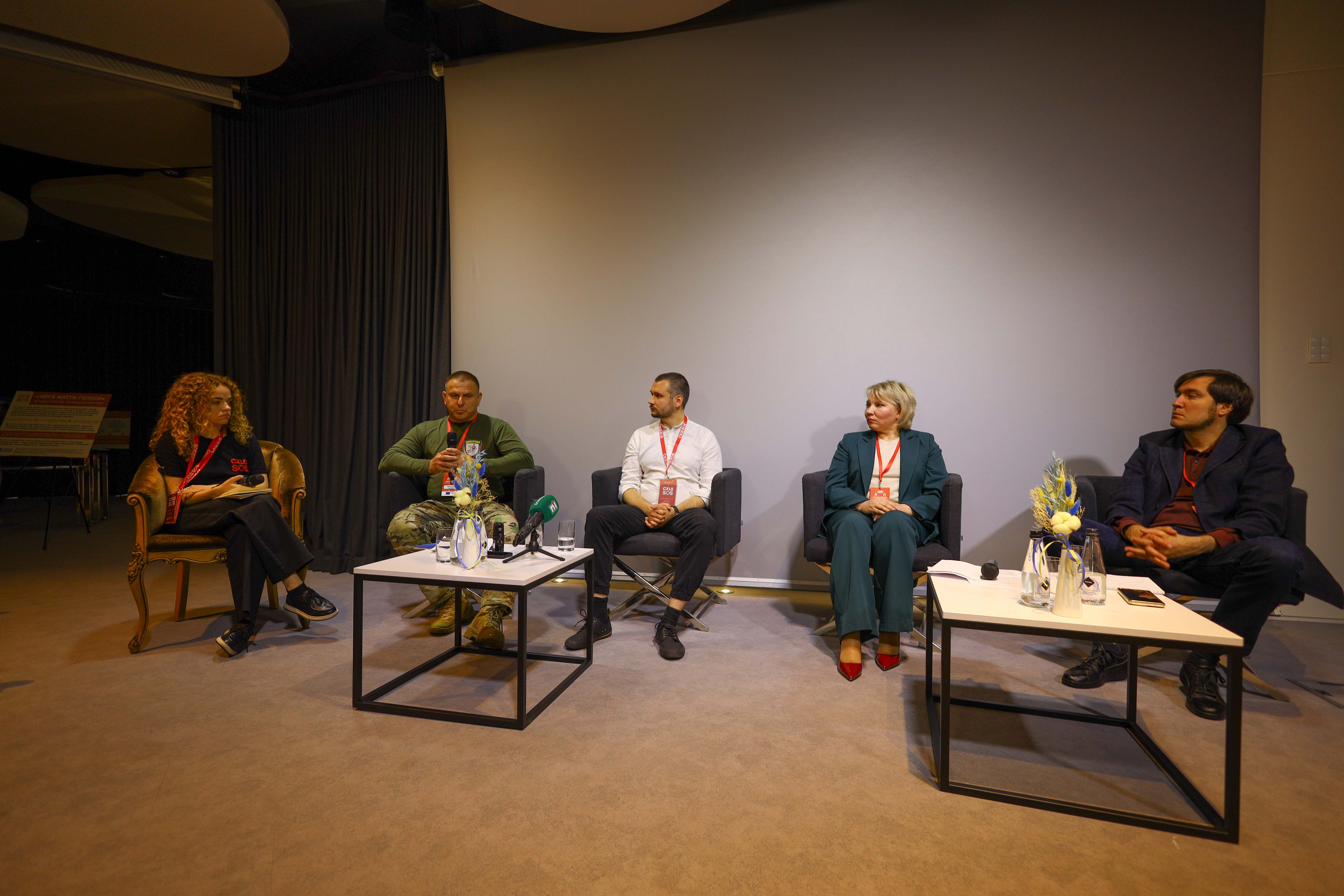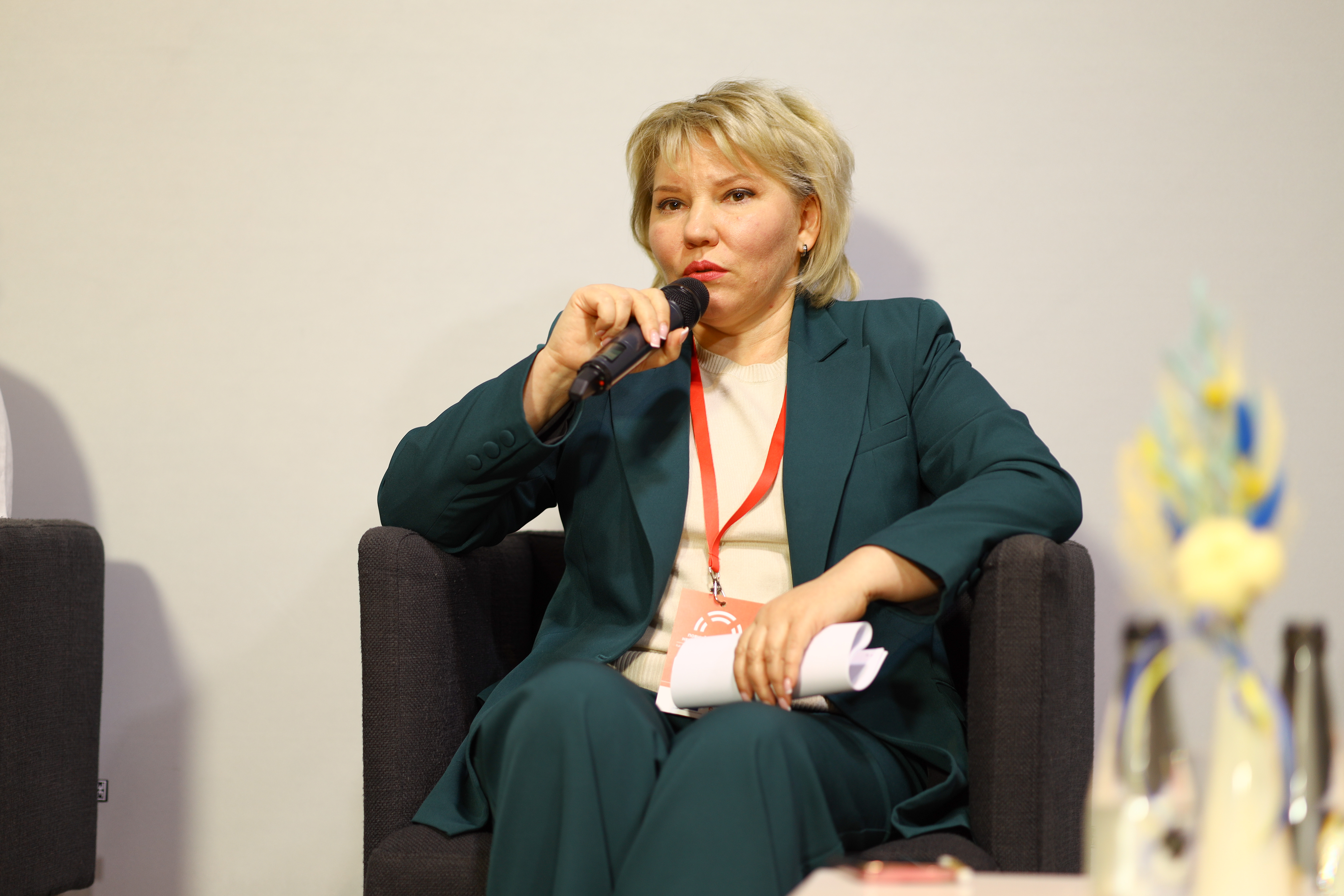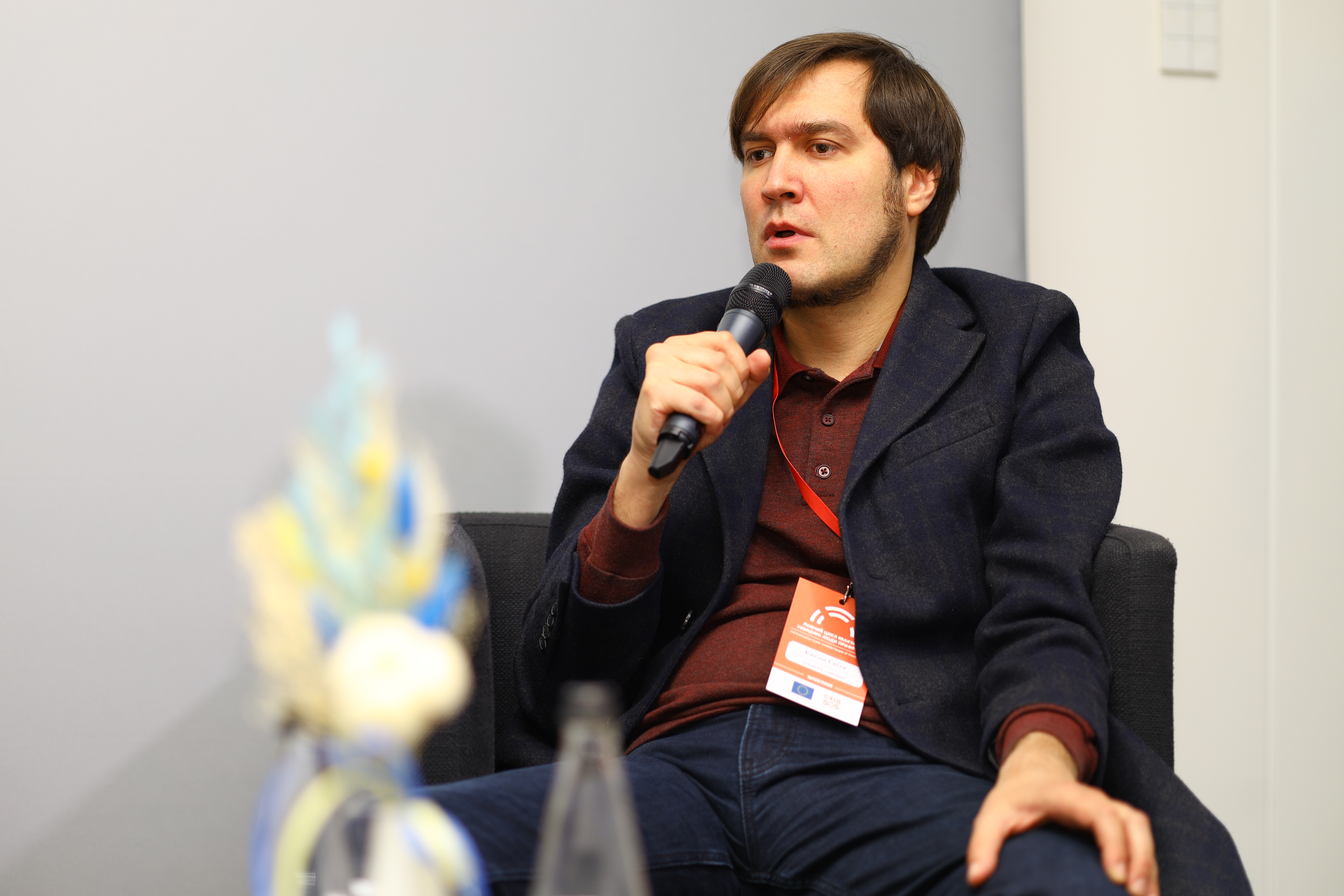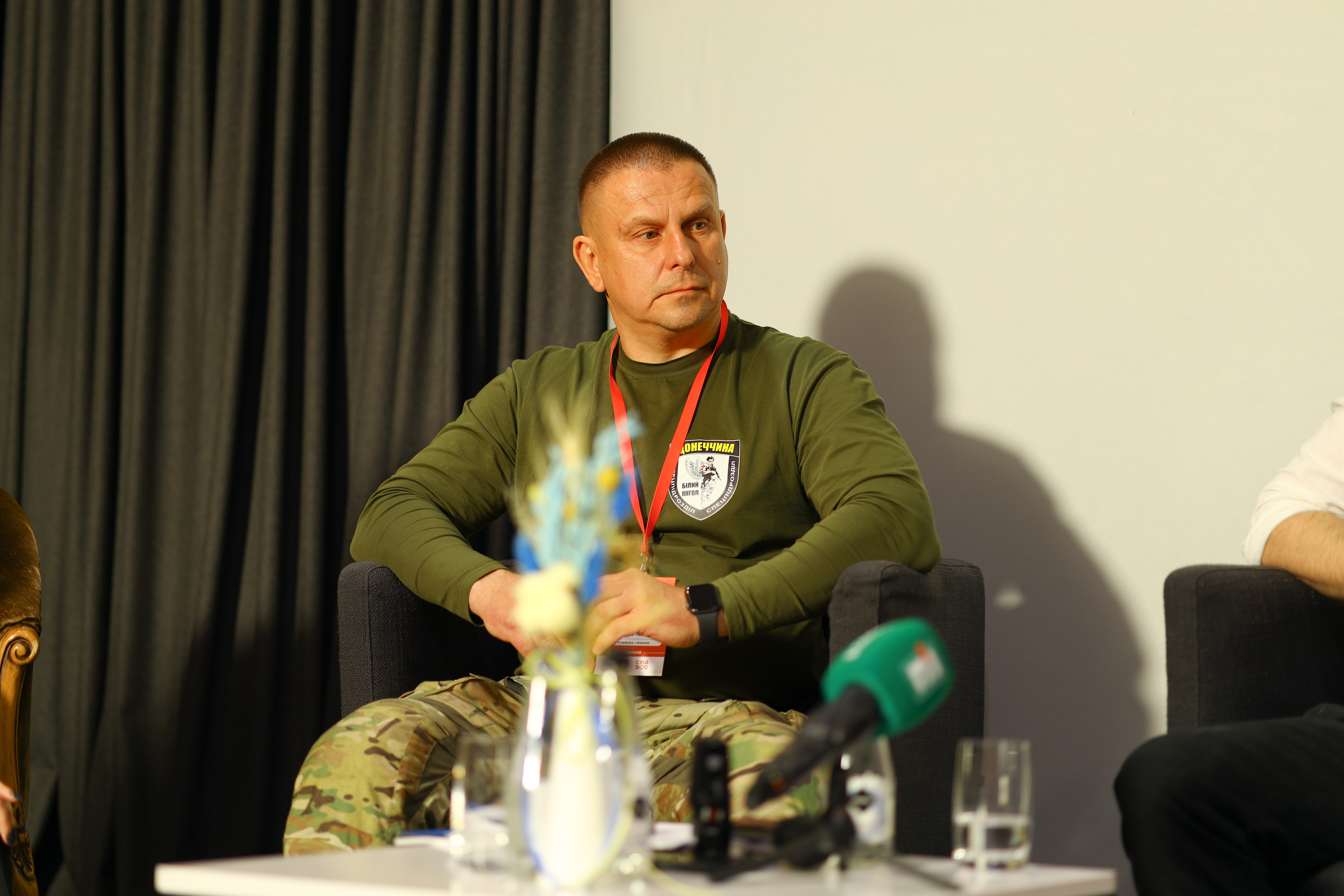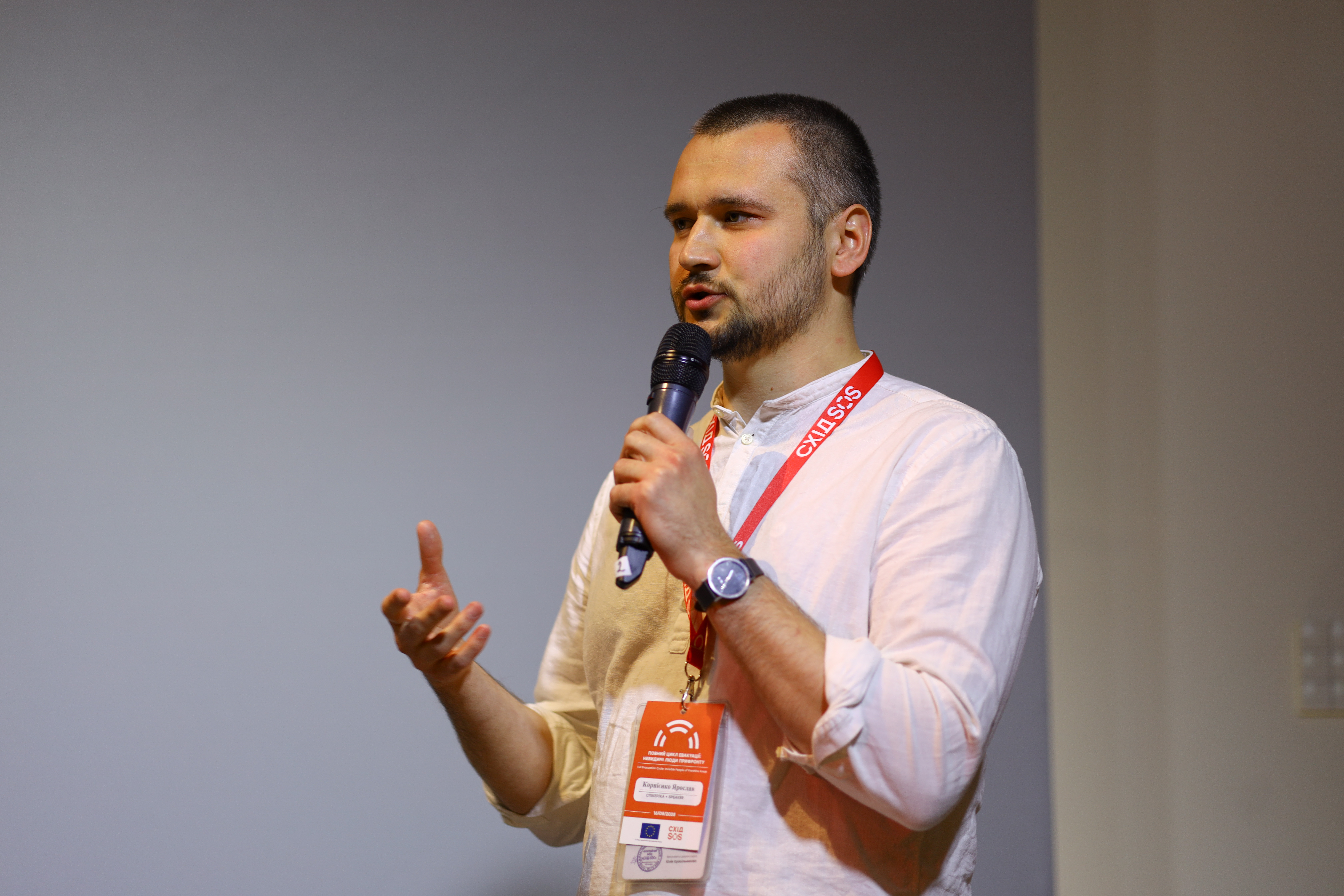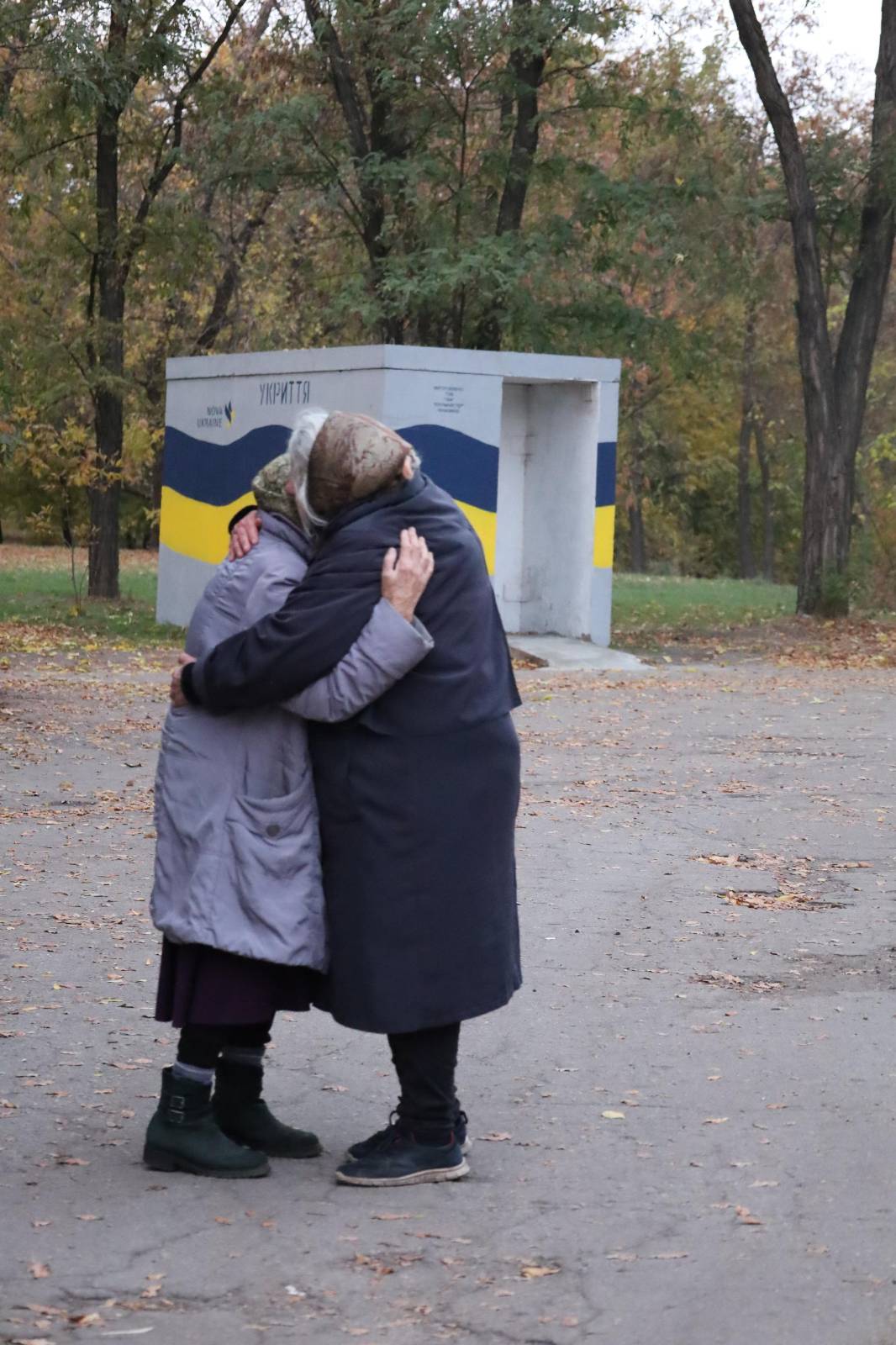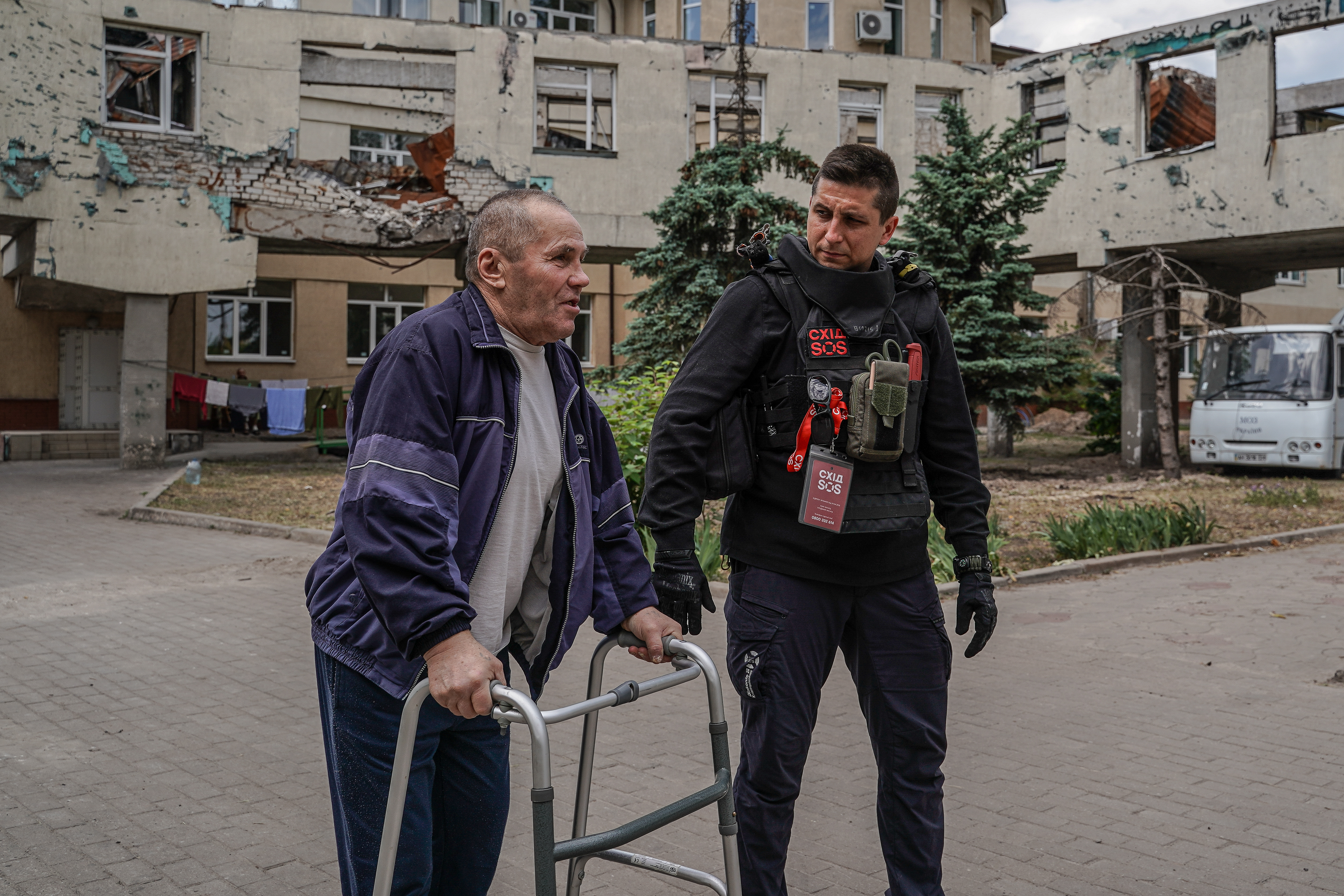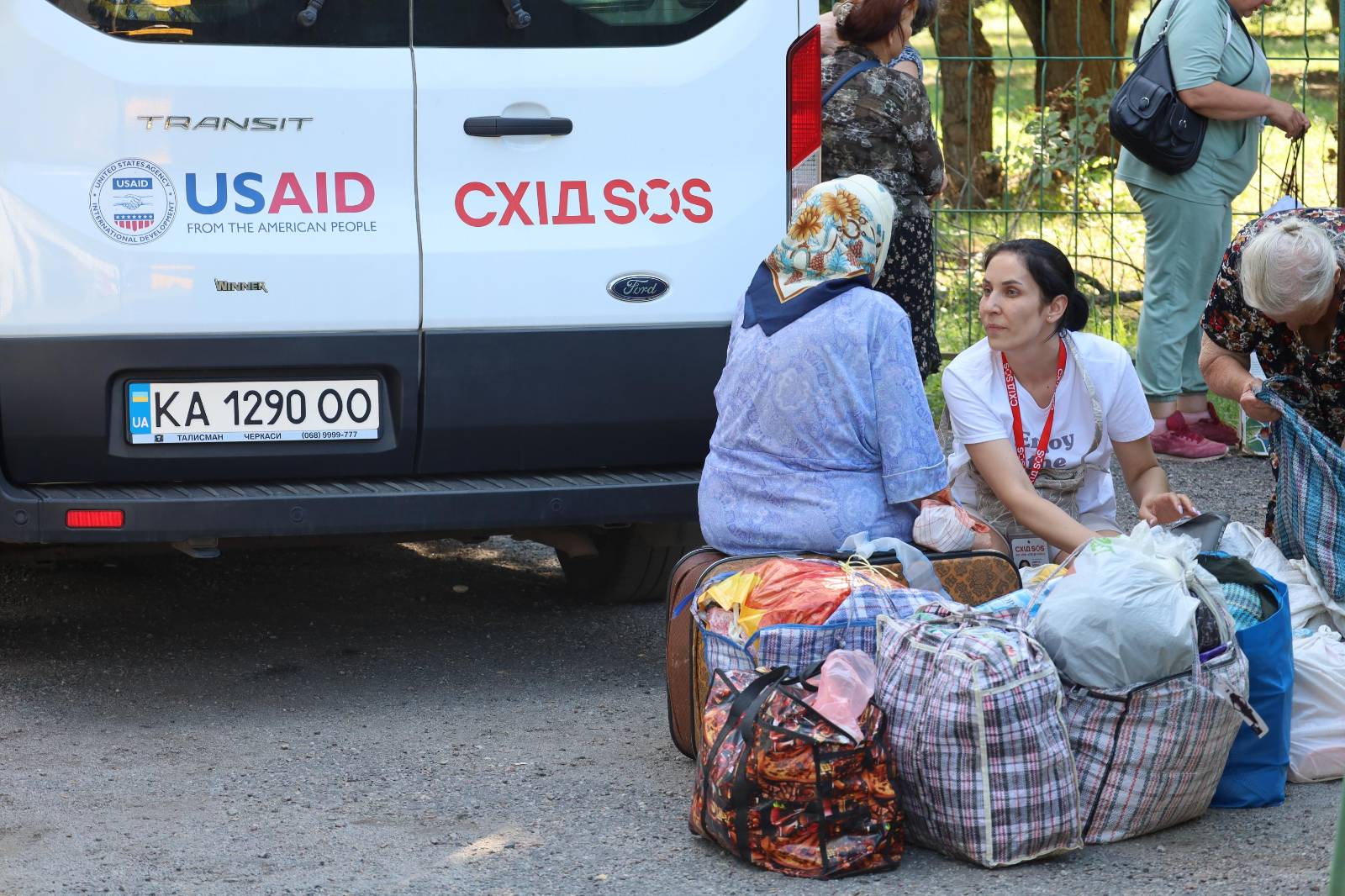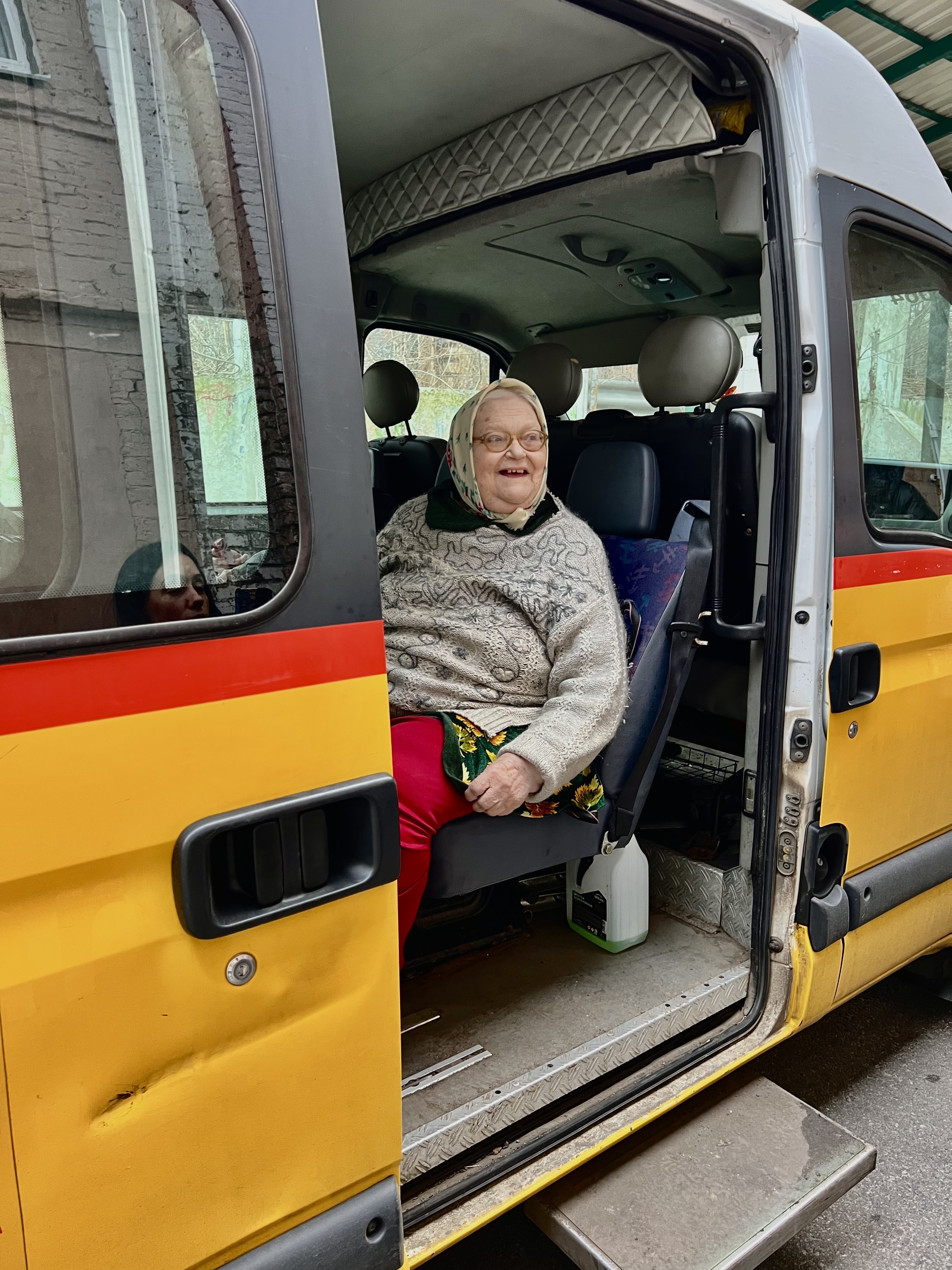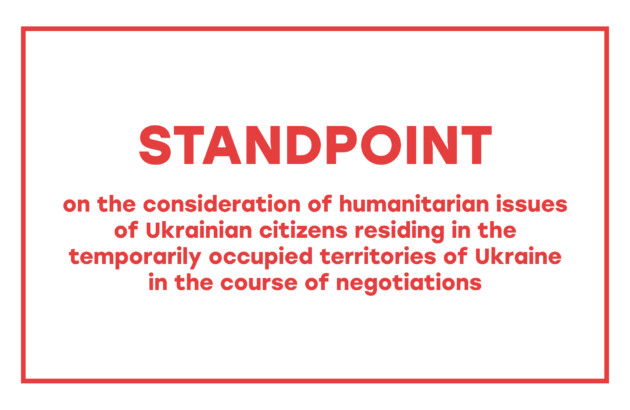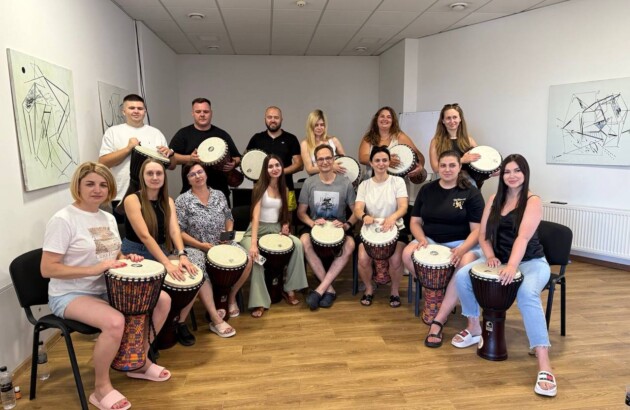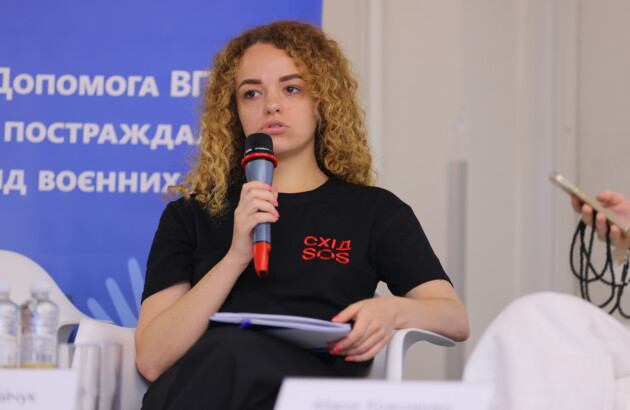Saving Lives on the Frontline: Evacuation Challenges and the Fight Against russian Propaganda. Panel Discussion Highlights from the Forum “Full Evacuation Cycle: Invisible People of the Frontline”
On May 16, 2025, the East SOS Charity Foundation hosted an important panel discussion, “Evacuation from the Frontline: Challenges in Building a Coherent Civilian Rescue System and Ensuring the Safety of Evacuation Teams,” held within the framework of the forum “Full Evacuation Cycle: Invisible People of the Frontline.”
Experts addressed the most pressing issues in evacuating civilians from frontline areas – from fear of the unknown and the spread of disinformation and fake news to the difficulties of implementing a complete evacuation cycle and ensuring safety under extremely dangerous conditions.
The panel featured Hennadii Yudin, Head of the White Angel evacuation group of the National Police in the Donetsk region; Olha Altunina, Representative of the Commissioner for the Rights of Citizens Affected by the Armed Aggression against Ukraine; Yevhen Kaplin, Head of the Proliska Humanitarian Mission; and Yaroslav Korniienko, Evacuation Coordinator at the East SOS Charity Foundation. The discussion was moderated by Yuliia Matviichuk, Human Rights Coordinator at East SOS.
Key points of the discussion
People in frontline regions face an information void filled with russian fakes
One of the speakers, Hennadii Yudin, head of the White Angel evacuation group of the National Police in the Donetsk region, shared insights from the unit’s work. Since April 2022, White Angel has helped evacuate more than 11,500 people, including around 1,500 children, and delivered about 400 tons of aid to frontline settlements.
Hennadii spoke about the realities of assisting people who remain in frontline areas, the mandatory evacuation of children, and the challenges that come with it.
“Forced evacuation is not about coming and picking up children,” Hennadii explained. “Our teams visit families and explain the conditions of evacuation. Then, when people are ready, we pick them up and bring them to partner organizations. We can also communicate with their relatives, who often help convince them to leave hell.”
He emphasized that residents in frontline areas live in an information vacuum: “Without communication, media, or electricity, they cannot grasp the reality. They hear about shelling in Kyiv or Kharkiv and assume the situation is the same as, say, in Pokrovsk. They don’t realize how dangerous it is locally. Meanwhile, they watch propaganda Telegram channels, where White Angel crews are called ‘black transplantologists.’ People genuinely believe we are transporting children and adults ‘for organs.’ This fake has been circulating since 2014.”
People believe that no one is waiting for them
Yevhen Kaplin, Founder and Head of the Proliska Humanitarian Mission, spoke about the challenges of accommodating evacuees in geriatric care facilities and explained why many people refuse to leave.
“They think no one is waiting for them here,” Yevhen said. “Some had traumatic experiences back in 2022, when evacuation meant a general hall for 100 people. Conditions like that barely exist anymore, but this needs to be explained and communicated.”
Yevhen recalled that in 2016–2017, he had already tried to draw the state’s attention to the issue of geriatric care. “There were older adults who couldn’t be placed in state-run geriatric institutions because 90% of them had living children. The law stated that if you have children, you cannot be placed in geriatrics,” he explained. He noted that while private care homes are an option, the cost of living can reach the equivalent of five minimum pensions, making them unaffordable for most older adults. Yevhen stressed that the situation has only been escalating since then.
About russian propaganda
Yevhen emphasized that word of mouth remains the most effective propaganda tool – and it can work in Ukraine’s favor. He believes that information about evacuation should be spread by all available means.
Olha Altunina, Representative of the Commissioner for the Rights of Citizens Affected by the Armed Aggression against Ukraine, stressed that the state must address information coverage on a larger scale. “In fact, we have a whole ministry that should have been dealing with this,” Olha said. “It should be a comprehensive story – with a plan on what to say, when to say it, and examples for different stages. What you and other NGOs do is great, but you cannot reach the entire audience alone. This is a global task of the state; it is state policy.”
People stay because of fear and disorientation, not stubbornness
Olha Altunina noted that the Commissioner’s Office is currently focused on monitoring the conditions in which evacuees are accommodated. She pointed out that many receiving facilities face recurring problems – inaccessibility for people with disabilities, lack of proper living conditions, and indifference from officials.
“There are groups of people who have been left out altogether: those with low mobility, people with illnesses who cannot be admitted to general shelters, and individuals with addictions,” Olha said.
She confirmed that insufficient and delayed communication is a major factor in why people remain in dangerous areas.
“We need to talk to people in frontline areas in advance, share real-life examples, outline the pros and cons, not wait until a mandatory evacuation is announced,” she emphasized.
The full evacuation cycle is now provided by the public sector
Olha Altunina stressed that the complete evacuation process is currently handled by public sector organizations.
“Unfortunately, the state cannot provide a full cycle. Yes, frontline military administrations are doing a lot and actively communicating with people. We monitor their work as part of parliamentary control. But in reality, the full cycle is ensured only by East SOS and other public organizations, not by the state,” she said.
Olha pointed out that even after 11 years of war, Ukraine still lacks clear, official evacuation protocols, for example, defining when and how to evacuate a court or city archive, what timelines to follow, how to measure the intensity of shelling, or how far people should be moved. She emphasized that these procedures must be developed and formalized.
During the forum, East SOS presented its research report “Invisible People of the Ukrainian Frontline Territory”, based on 60 in-depth interviews, which documents war crimes and reveals the urgent needs of people with limited mobility in frontline areas. Olha suggested working together to draft recommendations based on the report, noting that her involvement would make them mandatory for state authorities.
Ukraine has a unique evacuation experience, but it needs to be integrated into state policy
Yaroslav Korniienko, Evacuation Coordinator at East SOS, identified one of the most pressing problems: the absence of clear, state-issued instructions covering the evacuation process from start to finish.
“Currently, the full evacuation cycle operates mostly thanks to cooperation between the public sector and international partners. But I don’t see anyone at the national level overseeing it, someone who knows the process from A to Z and audits how it is carried out,” he said.
Yaroslav stressed that civil society organizations possess unique expertise, including effective hotlines, coordinated logistics, well-organized transit hubs, and tailored solutions for vulnerable groups. However, this knowledge and experience are not being integrated into state policy,
“Ukraine has a unique evacuation experience that no other country in the world has ever had in the history of humankind. The map is ready; it only needs to be integrated into state policy,” Yaroslav explained.
He believes that once this is done, cooperation with the state will become seamless, and everyone will clearly understand their role: what specialists are needed for specific tasks, what society lacks, and what needs to be done. And it will not matter whether this happens today or when a new generation is living in the country.
Yaroslav also emphasized the importance of teaching children about evacuation from an early age: “We can devote 45 minutes to a life safety lesson at school and explain the full cycle – what to take with you on the road. Sometimes it takes us the same 45 minutes to prepare a person for departure simply because they don’t know what to pack: pills, a photo of their ex-husband, a passport, a property ownership certificate, or a blanket.”
The speakers also discussed the importance of preserving institutional memory to ensure preparedness for potential future evacuations. The panel’s moderator, Yuliia Matviichuk, noted that when East SOS began working on evacuations, one of the greatest challenges, and one that remains today, was informing the public about the process. Involving experts, she said, is key to an effective response.
Panel discussion highlights
1. Ukraine’s evacuation legislation remains lengthy, abstract, and lacking in clear, practical instructions. At the same time, Ukraine has a unique evacuation experience unmatched anywhere in the world – it simply needs to be integrated into state policy.
2. Russian propaganda and the information vacuum in temporarily occupied and frontline territories often discourage people from evacuating. These factors create fear of the unknown, disorientation, and erode trust in evacuation missions.
3. A comprehensive information policy on evacuation is urgently needed, starting at the state level.
4. There is currently no systematic, state-led approach to evacuation. The full cycle is carried out primarily by public organizations in cooperation with state bodies.
5. Preserving institutional memory and rethinking legislation is critical to avoid starting from scratch in the event of future crises. Legislation should clearly define evacuation algorithms, responsible actors, and standards for coordination.
6. People with limited mobility and those with addictions remain among the most vulnerable and overlooked groups. Current legislation still contains gaps regarding their evacuation and accommodation.
The forum was organized within the framework of the project “Support for Vulnerable Groups and Residents of Remote Areas of Ukraine Affected by the War” with the financial support of the European Union.
